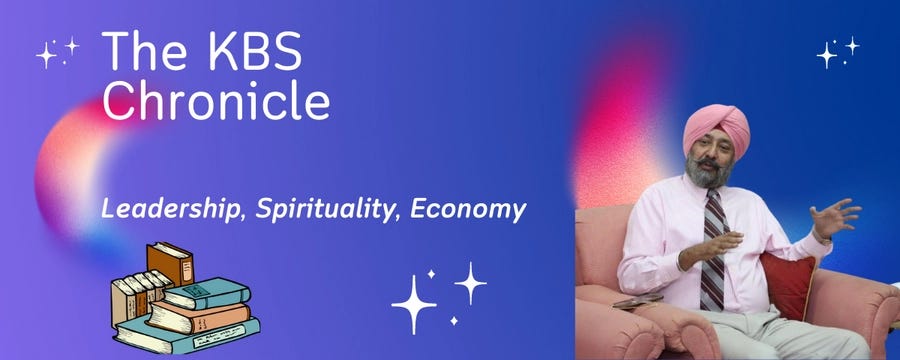Gopal Krishna Gokhale: A Pioneering Leader of India's Independence Movement
Our humble tribute on the occasion of his Birth Anniversary.
Gopal Krishna Gokhale: A Pioneering Leader of India's Independence Movement
On the birth anniversary of Gopal Krishna Gokhale, born on 9 May 1866, as we pay him our heartfelt homage, we reflect on the life and legacy of one of India's most influential political leaders and social reformers. Gokhale played a pivotal role in the Indian Independence movement, laying a strong foundation for future generations of leaders.
Early Life and Education
Born into a Chitpavan Brahmin family in Ratnagiri district, Maharashtra, Gokhale was raised in modest circumstances but benefitted from a progressive education, culminating in his graduation from Elphinstone College in Bombay in 1884. This education exposed him to Western political thought, where he developed a deep admiration for thinkers like John Stuart Mill and Edmund Burke. His mentor, Justice Mahadev Govind Ranade, greatly influenced Gokhale's ideals and guided him in understanding the social landscape of India.
Involvement in the Independence Movement
As one of the first university-educated Indians, Gokhale swiftly recognised the significance of political engagement for securing reforms. He joined the Indian National Congress in 1889—a nascent organisation then barely four years old—and rose to prominence as a leader advocating for Indian self-rule. Elected Congress President in 1905, he led the moderate faction within the Congress and emphasised working through established British institutions to achieve gradual and meaningful reforms. His tenure in the Bombay Legislative Council and the Imperial Legislative Council highlighted his exceptional skills in statistical analysis and budget advocacy. He also played a pivotal role in securing the Morley-Minto reforms of 1909.
Mentor to Mahatma Gandhi
One of Gokhale's greatest legacies was his mentorship of Mahatma Gandhi. When Gandhi returned from South Africa, Gokhale provided valuable guidance, influencing Gandhi's philosophy of non-violent civil disobedience. Gokhale's belief in non-confrontational methods and adherence to reformist ideals helped shape Gandhi's understanding of India's socio-political context.
Founding the Servants of India Society
In 1905, Gokhale founded the Servants of India Society, an organisation dedicated to instilling civic and patriotic duty through education. The society played a crucial role in raising awareness through mobile libraries, founding schools, and providing night classes for factory workers.
Ideological Differences with Bal Gangadhar Tilak
Gopal Krishna Gokhale (1866-1915) and Bal Gangadhar Tilak (1856-1990), both Marathas and leading figures of the Indian independence movement, differed in their ideologies and approaches. Gokhale, a moderate nationalist, advocated working within British institutions through constitutional methods like petitions, debates, and legislative reforms to achieve self-rule. In contrast, Tilak, representing the "extremist" faction, promoted more aggressive tactics like boycotts, civil disobedience, and mass mobilisation to challenge colonial rule. This ideological divide became evident in their clash over the Age of Consent Bill in 1891, which sought to raise the age of consent for child brides from 10 to 12 years. While Gokhale supported it as a much-needed social reform, Tilak and other orthodox Hindus opposed the Bill, viewing it as unwarranted interference of the Imperial Government in social customs.
Mutual Respect and Influence
Despite their political rivalry, Tilak acknowledged Gokhale's abilities and referred to him as "The Diamond of India." Gokhale's moderate approach deeply influenced leaders like Mahatma Gandhi and Muhammad Ali Jinnah, while Tilak's more assertive nationalism inspired Gandhi's later non-cooperation movement. Their divergent paths—Gokhale's moderate constitutionalism and Tilak's radical activism—highlight the two distinct strands of India's struggle for swaraj (self-rule). While sharing the same goal, their differing ideologies created a lasting legacy of rivalry and mutual respect between these two influential leaders.
Legacy and Impact
Gokhale passed away on 19 February 1915, at the age of 48, but not before leaving an indelible mark on India's freedom struggle. His ancestral home in Pune remains a testimony to his legacy. Gokhale's belief in the power of dialogue and gradual reform influenced generations of leaders and shaped the trajectory of India's independence movement.
Conclusion: Following Gokhale's Ideals Today
Gokhale's principles of education, moderation, and selfless service offer enduring lessons for modern India. His dedication to constitutional methods and inclusive social reforms remains as relevant today as it was over a century ago. In a diverse and dynamic nation like India, following Gokhale's example of empathy, education, and civic duty is vital to nurturing a more equitable society. His life serves as a powerful reminder that true leadership is not merely about reaching political milestones but transforming society through education, inclusivity, and a relentless pursuit of justice. As we honour his birth anniversary today, let us reaffirm our commitment to his ideals and continue striving for a fairer and more harmonious India.







